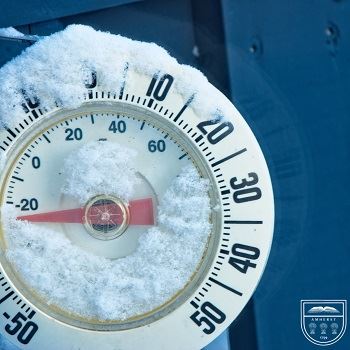Town Issues Extreme Cold Weather Safety Reminders

Photo: amherstma.gov
Source: amherstma.gov
Ahead of Friday in to Saturday’s cold weather forecast, we’re sharing some safety tips. Extreme cold is generally defined as a prolonged period of excessively cold weather. Extreme cold conditions are often, but not always, part of winter storms.
Why Prepare?
Winter in Massachusetts almost always includes periods of extreme cold weather. Exposure to cold can cause frostbite or hypothermia and has the potential to become life-threatening. Although anyone can suffer from cold-related health issues, some people are at greater risk than others, such as:
- Older adults
- Young children
- Those who are sick; and
- Those without adequate shelter
To reduce the risks of extreme cold conditions, take the proper safety precautions to protect yourself and your family.
Wind Chill Advisories And Warnings
The National Weather Service issues wind chill advisories and warnings to alert the public of potential extreme temperatures. Learn more about the Wind Chill Index.
- Wind Chill Advisory Wind chill index between -15°F and -24°F for at least three hours.
- Wind Chill Warning Wind chill index below -25°F for at least three hours.
What To Do Before Extreme Cold Weather Hits
- Be Informed by receiving alerts, warnings, and public safety information before, during, and after emergencies. Sign-up for Amherst Emergency Alerts here.
- Learn how to make a Family Emergency Plan that addresses the needs of your family and prepares your family to safely evacuate or shelter in place.
- Assemble an emergency kit.
- Prepare your home for possible emergencies.
- Ensure your vehicle is ready for safe winter driving.
- When it comes to winter preparedness, don’t forget your pets.
What You Can Do During Extreme Cold Weather
- Continue to check the media for emergency information.
- Follow instructions from public safety officials. In an Emergency Dial 9-1-1 to be connected to Amherst Public Safety professionals.
- Reduce outdoor activities for the whole family, including pets.
- Dress in several layers of loose-fitting, lightweight clothing instead of a single heavy layer. Outer garments should be tightly woven and water repellent. Wear a hat, mittens (not gloves), and sturdy waterproof boots to protect your arms, legs, hands and feet. Cover your mouth with a scarf to protect your lungs.
- Follow recommended safety precautions when using space heaters, a fireplace, or a wood stove to heat your home. Keep a fire extinguisher handy.
- Make sure emergency generators or secondary heating systems are well ventilated.
- If you lose heating, move into a single room. At night, cover windows and external doors with extra blankets or sheets.
- Wrap pipes in insulation or layers of newspapers covered in plastic to prevent them from freezing. Let a trickle of warm water run from a faucet to keep water moving through your pipes.
- If your pipes freeze, open all faucets all the way, remove any insulation, and heat the frozen pipe with a hair dryer or wrap with towels soaked in hot water. Never use an open flame to thaw pipes.
- Know the symptoms of and watch out for cold-related illnesses. Call 9-1-1 to report emergencies.
- Remember! Be a good neighbor. Check on family, friends, and neighbors, especially the elderly, those who live alone, those with medical conditions, and those who may need extra help.
